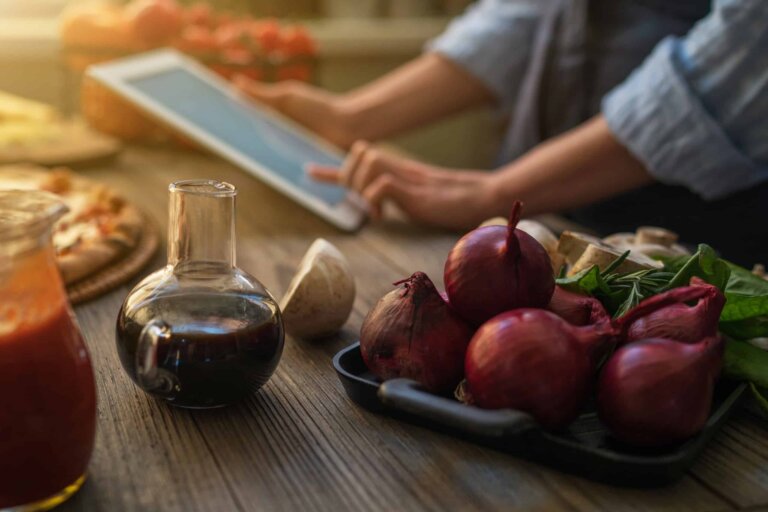There is no universal rule regarding the intellectual property protection you need for recipes. You’ve got many, many options, and the one you choose will depend on your goals and needs. Generally, we recommend working with an IP expert who can give you a detailed legal opinion on how to best protect the food and beverage recipes you’ve worked so hard to create.
At Bold Patents, though, we like to make sure our clients understand all their options—so here’s a quick guide to how IP protection applies to different types of food and beverage recipes.
Options in Intellectual Property Protection for Recipes
It’s not that there aren’t options for intellectual property protection for recipes. It’s that there are almost too many! Someone looking for this type of protection will have to decide between four different categories, all of which have various risks and benefits.
| Type | Uses |
| Copyright
A copyright protects artistic works like novels, songs, and plays. In some limited cases, it could apply to recipes. The copyright exists from the moment you create something, though you’ll have to register it. |
You can’t copyright a listing of ingredients or even the steps of a recipe, as they’d likely be too similar to existing works. However, there is an exception for a recipe that includes “substantial literary expression.”
For example, if you published a collection of recipes and included the background of each recipe, then copyright would apply, and you’d want to seek registration. |
PatentA patent provides a period of exclusive use for an invention, process, design, or formula for 20 years. Although a recipe could fit into one of these categories, the USPTO rarely approves patents for recipes. |
Patenting a recipe is seldom done because just about every new recipe will fail the non-obviousness requirement, in that an expert could easily recreate the idea. The only way a recipe may be patentable is if it were to involve making something completely new. Consider the modern trend of creating meat substitutes using plant products, like Burger King’s patented Impossible Whopper. |
TrademarkTrademarks protect branded items like slogans, logos, and company names. They can apply to recipes if the recipe is inherently tied to the brand. |
Trademarking is designed to protect your branded assets and overall image. As a result, a trademark won’t prevent someone from using your recipe, but it will keep them from using your unique name when selling or marketing products derived from it. It also goes hand-in-hand with copyright, in that you can’t copyright the name of a recipe collection, but you can trademark it. |
Trade secretA trade secret isn’t registered through any office. It’s simply something that stays confidential as long as you manage to keep it that way. Once a trade secret is in the public domain, you lose control of it. |
Trade secrets are great for those working in restaurants or creating a single popular item as they last forever, so long as the secret is kept. Coca-Cola is possibly the most famous example, as the company keeps its syrup formula a trade secret and has preserved it for over a century. |
The type of intellectual property protection you seek will depend on what you want to do with the recipe. You’ll also have to consider your own goals and resources, as each type of IP has its own requirements and nuances.
How to Protect Your Recipes
As you’ve seen, there are many intellectual property protection options for recipes, but it can be tough to determine the right one. Below, we’ll go over a few examples as well as the steps you’ll need to take to effectively protect each example.
You’ve written a collection of recipes
If you have a collection of recipes you want to publish and sell, you’ll need a copyright and a trademark. The copyright will protect the inside of the book. The trademark will protect the name of your collection in commerce. The copyright will exist when you create the book, but you should file for registration through the Electronic Copyright Office Registration System. For the trademark, you’ll want to hire an attorney to complete a trademark search to make sure there are no similarly named collections. Then, submit an intent-to-use trademark application for the name so you can preserve your filing date as you await publication.
You’ve created a vegan egg substitute
If you’ve developed a new and unique way of doing something, you need to file for a patent. The patent will protect your formula from use for 20 years from the date the application is filed. Keep in mind that this won’t work for a mere recipe. You’ll get denied based on lack of novelty or obviousness. You can file for a patent through the US Patent and Trademark Office, using their online portal. You’ll also need to complete a patent search to prove your formula is unique. This is a complex process that’s best completed by an attorney.
You use unique recipes in your restaurant
If you run a restaurant and keep a collection of unique recipes for your menu, then a trade secret is probably your best choice. This allows you to preserve the secrecy that keeps customers coming back indefinitely. The big thing you’ll need here is non-disclosure agreements. Anyone who knows or works with the recipes should sign one, promising not to share your trade secrets with outside parties. Although we don’t specialize in nondisclosure agreements, we’re always happy to refer our clients to trustworthy, licensed law firms in your state who do provide that service.
As you can see, there are many possible paths to keeping your recipe confidential. It’s going to change based on the recipe itself, what you want to do with it, and your existing resources. Your best bet is to seek out the advice of an experienced IP attorney who can guide you to the right decisions.
If you want to learn more about possible intellectual property protections for your recipes, consider scheduling a free Discovery Call with Bold Patents. We’ll work with you to meet your goals and keep your hard work safe. Contact us online or by phone at 800-849-1913 for more details.

